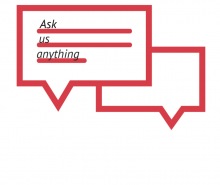Your Questions, Answered [V2]

This post is an installment in our “Coffee with the Coaches” series, where we answer YOUR questions posted on our Facebook page.
Q. If someone senses they might have a hormonal imbalance, what are some steps they should take?
A. As they say, “Don’t guess, test.”
I would start with an adrenal stress index test or ASI. Unhealthy adrenals are often at the root of many hormonal imbalances. They’re not the only factor, but they’re a common denominator.
I would also get a functional thyroid panel, including tests for thyroid antibodies (TPOAb and TgAb). Make sure you get your Free T3 tested – I feel that this is the most important thyroid hormone.
I don’t know your age (cycling/pre-menopausal, peri-menopausal, or post-menopausal), but I would also test progesterone, your three estrogens, and progesterone. And free and total testosterone.
If you’re still having your period, and you do a serum (blood) panel, it’s best to do these tests on day 21 of your cycle.
What’s more revealing is a Full Female Hormone Panel, an Extended Female Hormone Panel (if you have a long cycle), or a Post-Menopause Panel. These are salivary panels. Go here to find a provider for these tests.
Proteins bind to blood, but not saliva. So salivary testing is a cleaner, more accurate way of assessing your hormones. Plus, you’re taking several samples over the course of 30 days or so, so you get a nice overview of your reproductive hormone cycling.
Q. Do you recommend miso soup with wakame sea vegetables? Doesn’t it contain too much iodine? I recently felt in love with it and season it with turmeric and many other herbs.
A. You might be surprised to hear that I love miso soup, even though it’s a soy product. And I love it even more with sea vegetables.
Miso is fermented soy, so it’s a whole different product than say, tofu. Soy is known as an estrogen mimicker, but miso is said to be anti-estrogenic. Miso also has “radioprotective” benefits – it can reduce tissue damage from radiation.
And yes, sea vegetables are one of our best sources of iodine. Iodine is a critical mineral and adequate levels are said to reduce a woman’s chances of breast cancer by a whopping 500%.
Iodine is highly controversial in the functional medicine community – especially when it comes to Hashimoto’s. Some of the doctors we respect the most are on opposite sides of the fence when it comes to iodine supplementation. Some say, “never” and some say it’s non-negotiable.
Food sources are always your best source of any vitamin or mineral, so I say load ‘er up with the wakame. Or nori or kombu or arame or kelp.
And man, I really get on my soapbox about turmeric. It’s one of the most powerful anti-inflammatories on the planet and it’s also an immune modulator. If you’re looking to supplement with it, which I highly recommend for anyone with systemic inflammation and autoimmunity, this is my favorite product.
Q. What are your top 10 pantry staples?
A.
- Gomasio
- Ghee
- Olive oil
- Dark chocolate
- Sun dried tomatoes
- Coconut oil
- Sunbutter
- Polenta
- SeaSnax
- Raw Manuka honey
Comments
I was diagnosed with
I was diagnosed with Hashimotos 15 years ago and was told I would have to take synthroid for the rest of my life. I've been reading a lot about this disease lately and am wondering if I have taken synthorid for 15 years if it is still possible to reverse this disease and get my thyroid working again or if it has been too long?
Hi Sandy, yes, it’s entirely
Hi Sandy, yes, it’s entirely possible. I’m not going to say that it’s guaranteed, but it’s possible.
Add comment